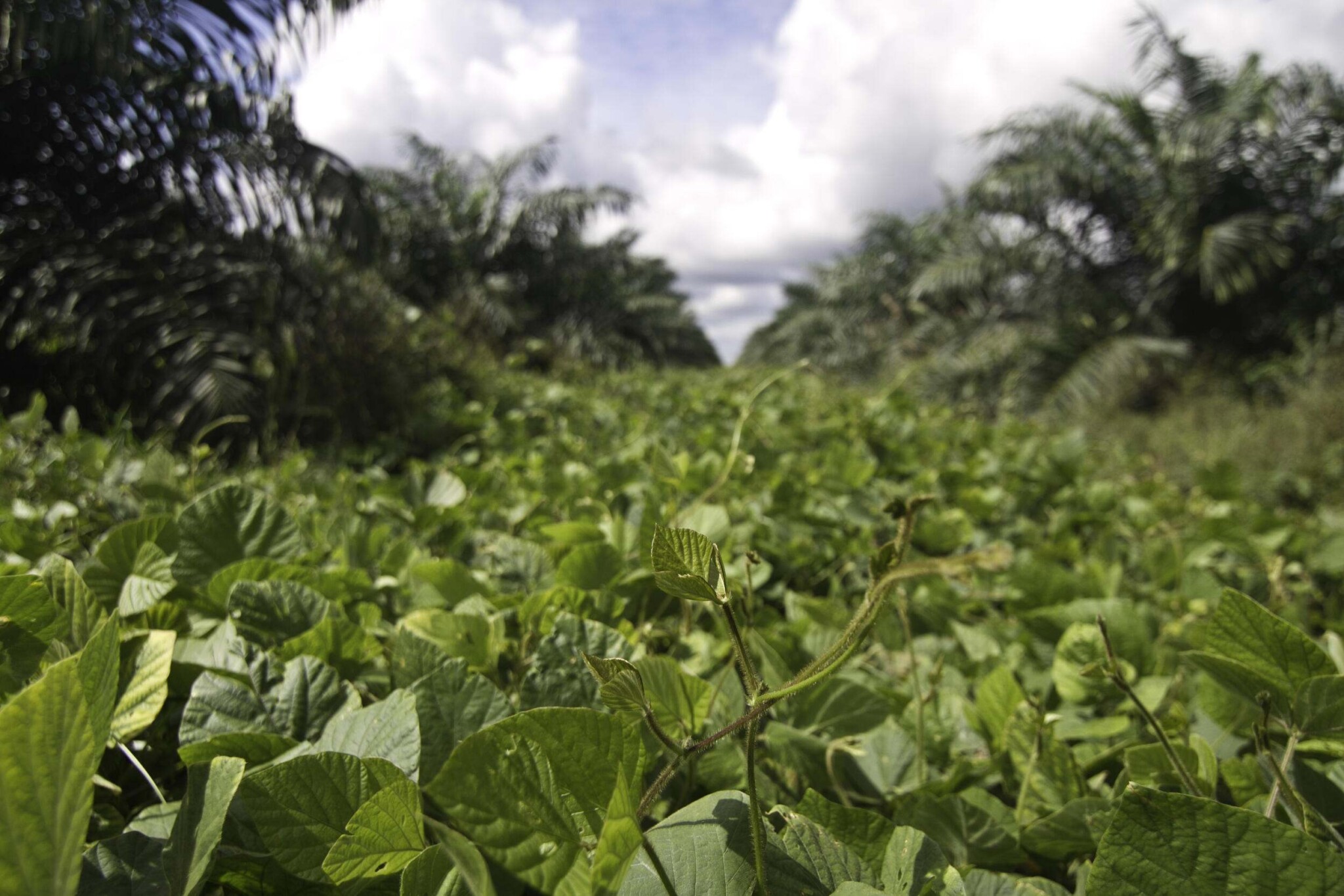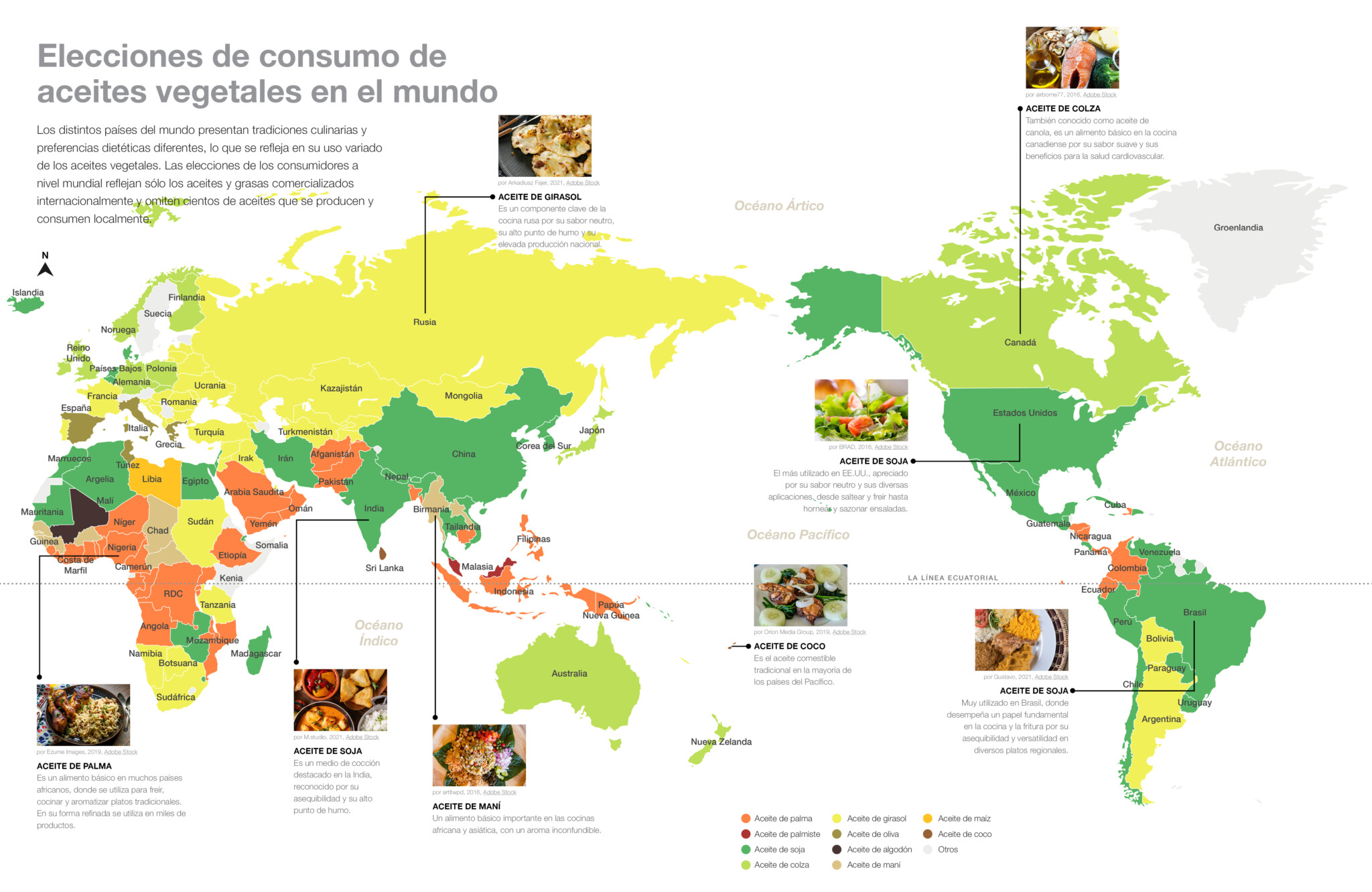
African oil palm (Elaeis guineensis) at Manuelita's Altamira palm oil farm in the Colombian Llanos. Copyright © Erika Nortemann/TNC
The Spanish edition of the report Exploring the Future of Vegetable Oils was launched at CBD COP16, in Colombia. This report examines the impact of vegetable oil production on biodiversity and proposes sustainable practices aligned with the Kunming-Montreal Framework, highlighting the necessity of cross-sector collaboration in implementing zero-deforestation policies.
During the reception and launch event, members of the IUCN Oil Crops Task Force and partners presented key findings from this groundbreaking global study on the future of vegetable oils. This study explores how different vegetable oils affect biodiversity and what it takes to transition to more sustainable production practices.
The hosts encouraged participants to adopt a nuanced perspective on vegetable oil production and food systems: there are no inherently good or bad oils, only good and bad production practices. To ensure that oil crops become a force for good, stakeholders must focus on sustainable practices throughout the value chain, including regenerative agriculture, agroforestry, agrochemical standards, and fair labour.
The report is relevant to the conference discussions as it aims to foster dialogue among political, business, and civil society leaders, particularly in preventing the expansion of oilseed crops into natural ecosystems and promoting biodiversity-friendly production practices.
Read more
Related articles for further reading
Key Insights:
- Oil crops use approximately 37% of agricultural land. Their future significantly influences global land use, prosperity, health, climate, and the environment. As demand for oil grows, so does the pressure on land for growing oil crops.
- No vegetable oil crop is intrinsically good or bad. The impact of a crop depends on how and where it is produced, financed, traded, speculated upon, and consumed.
- Objective guidance for oil consumers and investors is lacking. Improving traceability and transparency enables informed decision-making and helps hold producers, investors, and buyers accountable.
- Responsible governance in oil crop production requires a combination of legislation and Voluntary Sustainability Standards (VSS) to reduce harm.
Considerations:
- Governments, businesses, and investors should make vegetable oils a crucial policy consideration, integrating food, energy, agriculture, land use, and biodiversity. They must ensure that vegetable oil demand is met on existing agricultural land and respect human rights.
- Consumers and investors should demand a rights-based approach, transparency, and accountability. Expansion should not occur in natural ecosystems or negatively impact people. Preferences and culinary traditions need to be acknowledged.
- There needs to be more transparency in vegetable oil systems. This includes highlighting often overlooked issues and providing a nuanced view of the impacts from vegetable oil systems.
- Strong auditing and assurance systems are important for both mandatory and voluntary governance systems.
>>> READ THE REPORT IN ENGLISH
>>> LEA EL INFORME EN ESPAÑOL
READ MORE:
- Real economy and Indigenous leaders call on Colombia and Brazil to drive a ‘year of united action on climate, nature and food’
- Policy Tracker 2024: Only 33% of nature-related policies published since the Paris Agreement have allocated budgets
- Nature tech market nears $2 billion: A crucial intersection for private sector and policymakers at COP16
- The clock is ticking: finance sector deforestation action must now go mainstream
